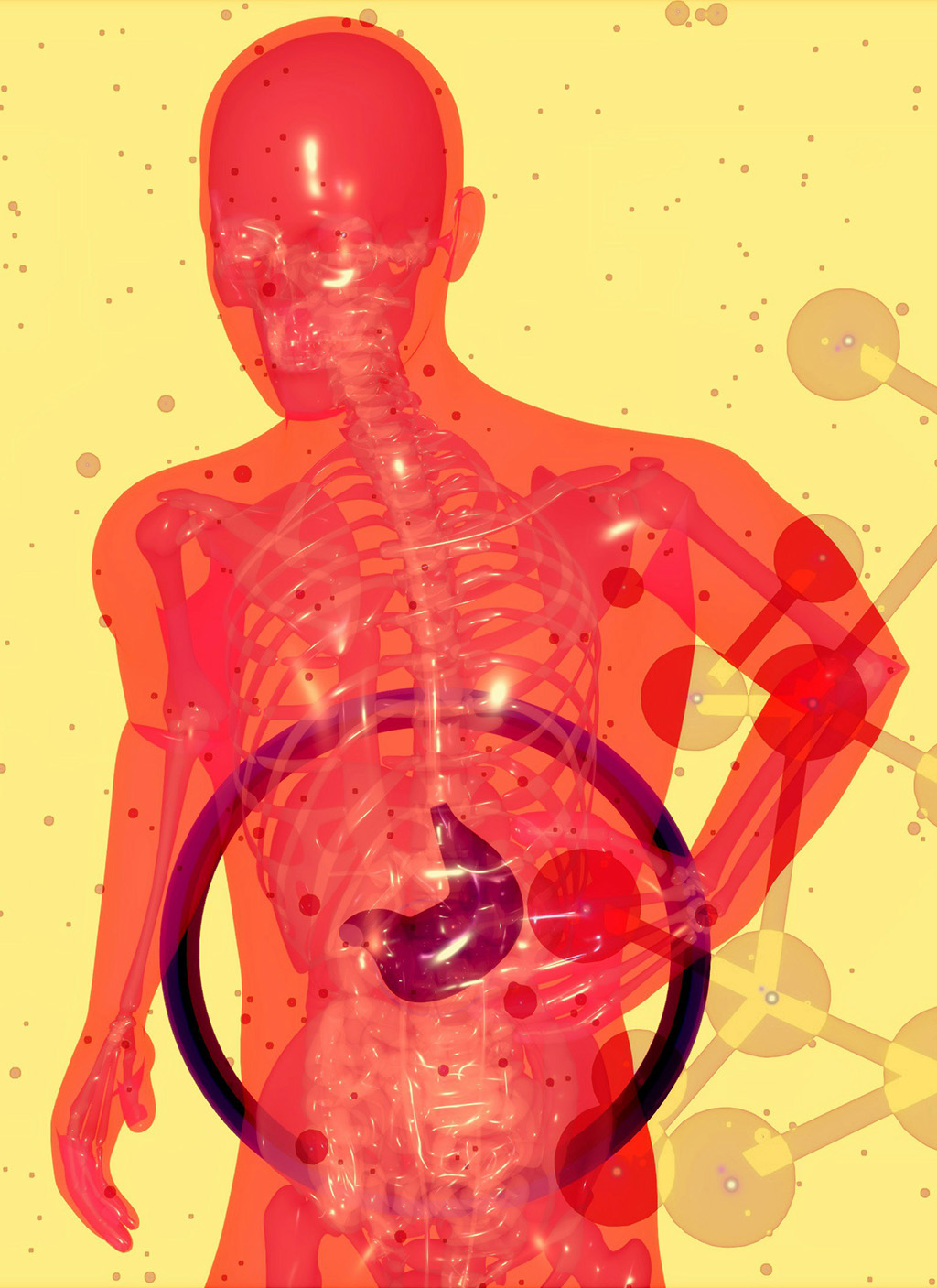Gastroparesis

Optogenetic
In gastroparesis, the passage of food into the subsequent intestinal section is disrupted. The cause is a malfunction of the enteric nervous system and the interstitial cells of Cajal (pacemakers of the intestine) while the smooth muscle is still intact. Millions of patients are affected by this debilitating condition, for which there is currently no treatment that preserves stomach function.
Treatment through electrical stimulation is only possible for patients at low currents to avoid tissue damage and pain. For this reason, only the afferent nerves are stimulated, but not the smooth muscle cells. Therefore, initial clinical studies report only mild symptom relief in some cases, but not restoration of food transport.
Optogenetic stimulation takes a completely different approach. Unlike electrical prosthetics, it allows for long-term control of muscle function, even when afferent nerves have degenerated. We have pioneered optogenetic stimulation of muscle cells and demonstrated that stimulation of smooth muscle cells triggers force generation that increases gastric pressure and enables the passage of chyme. Therefore, we want to develop the optogenetic gastric pacemaker and thus establish the first function-preserving therapy for patients with gastroparesis.
Contact:
Prof. Dr. med. Dr. Tobias Brügmann

